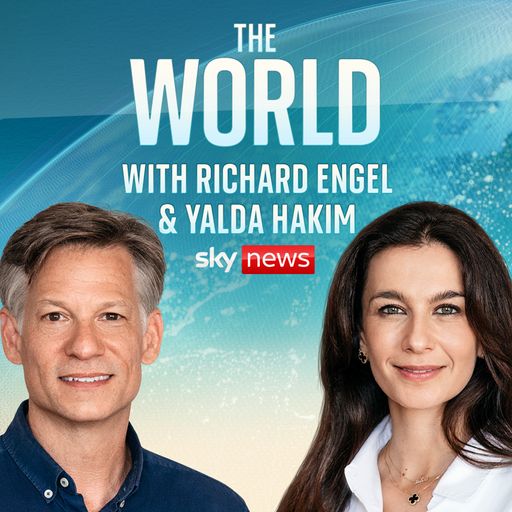100% Original Items
Official licensed products only
Satisfaction Guarantee
No replica, No copy items
Secure Payment
Powered by Paypal & Stripe
Same Day Dispatch
All orders placed before 2PM
Official licensed products only
No replica, No copy items
Powered by Paypal & Stripe
All orders placed before 2PM
Official licensed products only
No replica, No copy items
Powered by Paypal & Stripe
All orders placed before 2PM
Official licensed products only
No replica, No copy items
Powered by Paypal & Stripe
All orders placed before 2PM
Official licensed products only
No replica, No copy items
Powered by Paypal & Stripe
All orders placed before 2PM


The cardinals entering the conclave believe they will be guided by the Holy Spirit in deciding who to choose as the next leader of the Catholic Church.
But even the most pious among them know that while celestial intervention plays a part, so too do the much more earthly realities of the current shifts in international politics.
There are always geographical and ideological considerations in the choice of a new Pope, with tensions between progressive and traditional factions in deciding the future direction of the Church.
Of the 133 cardinals eligible to vote, 108 were appointed by Pope Francis. The late Pope tried to make the College of Cardinals more inclusive by choosing many from the Global South, especially as Africa and Asia are the areas of biggest growth for Catholicism. Despite this, the European cardinals remain the biggest voting block with 53, more than double the number from each of the other continents.
Read more: Who could be the next pope?
Phone bans, security sweeps and secrecy oaths: How Sistine Chapel prepares for conclave
A more inclusive conclave is ironically also a more divided one. Many of Francis’ progressive stances, like approving the blessing of gay couples or allowing divorcees to receive communion, were met with resistance by some African cardinals, who tend to be more conservative and fear such moves could undermine the teachings of the church.
Please use Chrome browser for a more accessible video player

1:02
Conclave: Behind the scenes
The late pope had often allowed local bishops the final say on many of these issues to accommodate regional differences, but critics worry this decentralisation could lead to inconsistencies. The conclave may prioritise choosing someone who they feel can preserve the unity of the church.
Age matters too, with many cardinals considered too young for the job. Resignations from the papacy remain vanishingly rare, so the conclave may refrain from electing a man who could stay in the role for several decades in a fast-changing world.
Please use Chrome browser for a more accessible video player

9:55
Conclave ‘a profoundly political moment’
The elephant in the chapel
All popes are reflective of their time. Pope John Paul II came from then-communist Poland during the Cold War. Pope Francis was the first pope from the Global South at a time when immigration became a key international issue.
Considering the impact he’s having on global politics, Donald Trump may end up being the elephant in the chapel. He had openly clashed with Pope Francis on issues like climate change and the treatment of migrants.

Listen to The World with Richard Engel and Yalda Hakim every Wednesday
The US matters not just diplomatically but financially too. Roughly a third of all donations to the church from around the world come from the United States, by far the single largest donor country. At the last election, Donald Trump increased his vote among US catholics, with 56% voting for him.
Whoever the new pope is, he will lead the church in a world increasingly shaped by Donald Trump. As they make their decision, the cardinals will bear that in mind.
No account yet?
Create an Account